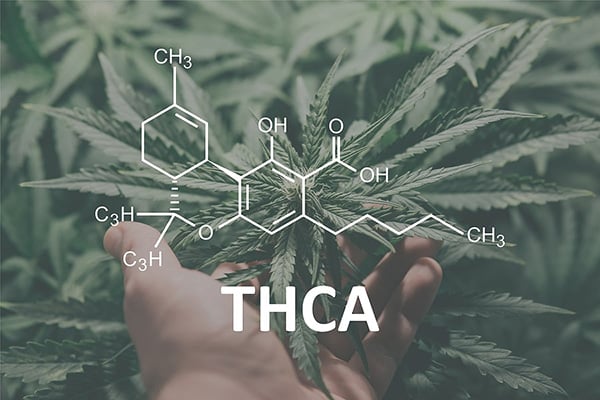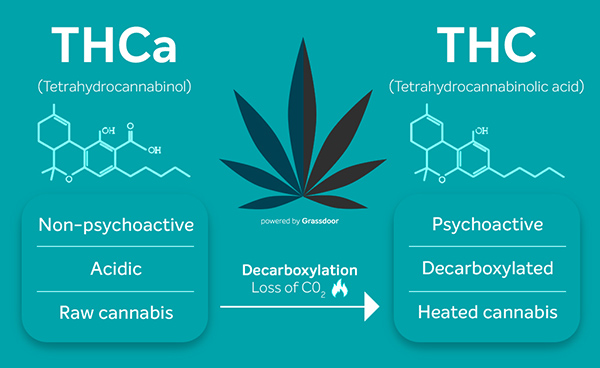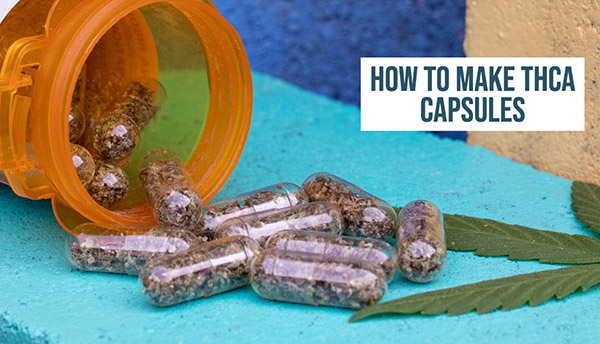THCA: A Natural Way to relieve inflammation and arthritis
THCA: A Natural Way to relieve inflammation and arthritis

THCA, or tetrahydrocannabinol acid, is a non-psychoactive compound found in both raw and live cannabis that has quietly made waves in the scientific community for its potential anti-inflammatory properties. This compound could mark a breakthrough in controlling inflammation and arthritis, offering a natural alternative to traditional drug treatments. Unlike its better-known tetrahydrocannabinol (THC), THCA can provide therapeutic benefits without producing a "high," opening up a new avenue for individuals seeking relief from chronic pain and inflammation. If you want to learn more about the therapeutic effects of THCA, consider these facts.
Anti-inflammatory properties of THCA

THCA's anti-inflammatory properties are largely attributed to its ability to inhibit enzymes COX-1 and COX-2, which are the cause of inflammation in the body. By targeting these enzymes, THCA may help reduce inflammation and swelling, providing potential relief for people with conditions such as arthritis. In preclinical studies, THCA has shown promising results and remains the subject of ongoing research. While more comprehensive human trials are needed to fully understand the range of therapeutic effects of THCA, these initial findings suggest that this natural compound holds great promise in pain and inflammation management.
Incorporate THCA into your daily health
Various dietary methods can be used to harness the potential benefits of THCA to control inflammation and pain in a natural way. Raw marijuana juice, for example, is a popular way to ingest THCA because heat or decarboxylation is avoided, ensuring that the compound remains intact (Heat will convert THCA into THC).
Other methods include tinctures and oil infused with THCA, enabling precise dosing. It is important to note that, as with any new supplement or treatment, it is recommended to consult a healthcare provider before incorporating THCA into a health routine.
In addition, THCA can be used in combination with other plant-based compounds to increase the soothing effect. For example, pairing it with CBDA (cannabidiolic acid) may have a synergistic effect, as both compounds have anti-inflammatory and analgesic properties that can work together to relieve discomfort.
Find the right online store
Decide where to buy from based on factors such as quality control, differences in product strength, and delivery methods for those who are unable or unwilling to purchase in person. For example, stores that offer both vape and smokable products will often offer multiple THCA products from leading brands. They should be able to offer popular varieties so that you can find the best efficacy and price range to meet your specific needs.
The role of THCA in research and medicine
As observed in preliminary studies, the compound has the potential to reduce chronic pain and inflammation, potentially revolutionizing treatment options for conditions such as arthritis. In addition, given THCA's ability to interact with the nervous system without the psychoactive effects caused by THC, there has been renewed interest in the potential role of THCA in neuroprotective therapy. In an era of growing demand for organic, non-addictive, and effective pain management solutions, THCA offers a glimmer of hope. However, it is important to remember that while early studies are promising, additional comprehensive studies are needed to consolidate these findings and fully understand the therapeutic potential of THCA. However, THCA's future in medicine remains uncertain.
Legal status of THCA
Despite the complex and varied legal landscape for cannabis and its derivatives, THCA is generally not considered a controlled substance in many regions. This is because THCA is not psychoactive and does not produce a "high" effect. However, laws regarding marijuana change frequently, which can affect the availability and use of THCA. It is important for consumers to keep abreast of the regulations in their respective locations and consult a legal expert or healthcare provider when in doubt about the legality of using THCA. The legal ambiguity surrounding THCA is another reason why comprehensive research and clear regulatory guidelines are needed to help more people potentially benefit from the therapeutic properties of the compound.
Also, as with any supplement or treatment, it's important to consult a healthcare professional before incorporating THCA into your health routine. Ensuring the optimal dose and safety of the compound is critical for people seeking relief from chronic pain and inflammation.
The role of dietary habits and lifestyle
While the potential benefits of THCA are being explored, it's important to keep in mind the broader context of overall health and wellness. Chronic pain and inflammation are often linked to lifestyle factors such as diet, exercise, and stress levels. Including anti-inflammatory foods in your diet, such as green leafy vegetables, berries, and fatty fish, can help control inflammation. Regular exercise and stress management techniques such as meditation and yoga can also play an important role in alleviating chronic pain. While THCA has vast potential, a holistic approach to health, balanced eating habits, lifestyle, and natural supplements such as THCA can lead to more sustainable health outcomes. As always, consult with your healthcare provider to develop healthy habits that best suit your individual needs.
A glimpse into the future of THCA
As we delve deeper into the cannabis world and its therapeutic potential, THCA continues to be a promising candidate for natural, non-psychoactive pain and inflammation management. Continued research into the anti-inflammatory and potentially neuroprotective properties of this compound may soon change our understanding of plant-based therapies. However, until more definitive studies are conducted, it is critical to use THCA carefully and under the guidance of a healthcare provider.
On the other hand, the legal landscape surrounding THCA is still new and somewhat uncertain. Therefore, it is important to know the local regulations and consult legal experts if necessary. Despite its complexity, THCA holds promise for future use in natural, non-addictive therapies for chronic pain and inflammation management.
The world of natural plant remedies is rapidly evolving, and THCA is at the forefront of this shift, offering new possibilities for the effective management of chronic pain and inflammation. Its potential therapeutic benefits, coupled with non-psychoactive properties, make it an attractive option for those seeking a more natural approach to health. However, as with any emerging treatment, it is important to use THCA with caution, consult a healthcare provider, and stay up to date with local laws and regulations. As we continue to explore the potential of THCA and resolve its intricate legal issues, the future of this compound seems promising. But until extensive research finalizes its benefits and applications.
How to prepare THCA capsules.

Production material
- Cannabis (containing selected cannabinoids)
- Empty capsule size 00 or 0
- Grinding machine (optional)
Operation procedure
- If you are mixing different strains or cannabinoids, pre-grind the buds and mix them well. Otherwise, cut the flowers into peppercorn-sized pieces.
- Fill the empty capsule with the ground-up mixture, then close the capsule. It is easiest to store the ground and blended herb in a small bowl and scoop the empty capsules into the mixture.
- Store the capsules in an airtight glass jar and keep them in a cool dark place.
- Take the capsules twice a day or as recommended by your doctor.
In addition to dried cannabis, you can also fill capsules with kief, THCA isolates, or inactive/non-decarboxylated concentrates.
THCA, another form of tetrahydrocannabinol, is common in marijuana. When it is heated it becomes decarboxylated and the THCA is transformed into THC. This process is called decarboxylation. Heating, burning, or vaporizing cannabis products will greatly accelerate this process.
THCA is not psychoactive so will not get you high, if you want to get a buzz from these capsules then you will need to decarboxylate the herb first. This is done by heating the herb at 220 degrees Fahrenheit for 45 minutes.
